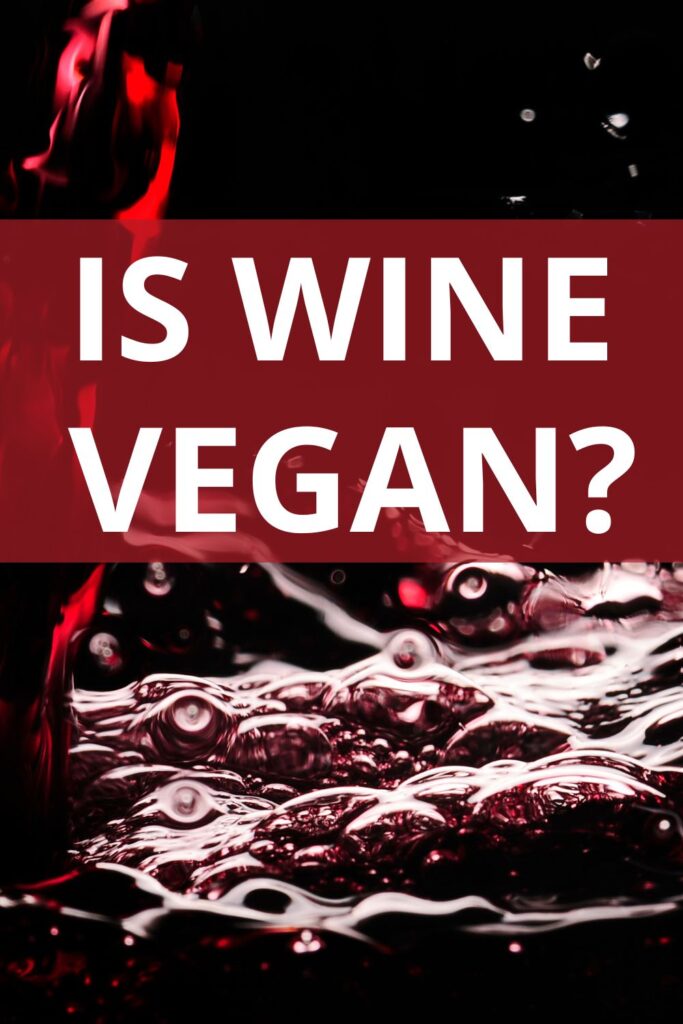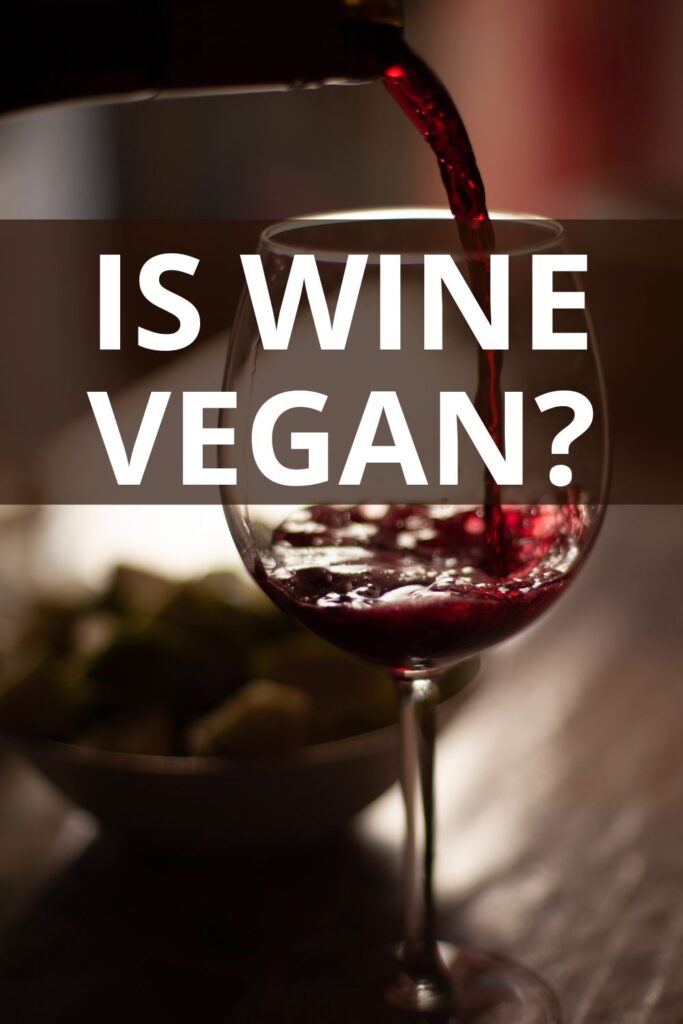As strange or shocking as it may seem, wine can contain animal products.
This can be frustrating for vegetarians and vegans as it is can be difficult to tell if a wine contains animal products or not.
In this article, you will learn what animal products are used in the winemaking process and why, and what you can do to avoid them.

Contents
Why some wines are not vegan
In order to make wine, yeast is used to ferment crushed grapes. Fermented wine contains naturally occurring substances, such as small particles of proteins, tannins and tartrates.
These are often removed in a process called ‘fining’.
Fining clarifies the wine by adding a fining agent that attracts any suspended solids.
This lightly filters the wine and ensures that the wine is microbiologically stable.
Fining agents are often animal-derived products, including from fish, eggs and dairy.

Fining agents that are commonly used in winemaking include:
- Bentonite clay
- Activated charcoal
- Vegetable protein (e.g., pea protein)
- Plant-based enzymes (e.g., papain)
- Diatomaceous earth
- Silica gel
- Polysaccharides (e.g., gum arabic)
- Potassium caseinate (derived from milk)
- Sodium caseinate (derived from milk)
- Gelatin (derived from animal collagen)
- Egg whites
- Isinglass (derived from fish bladder)
- Chitosan (derived from shellfish)
- Albumin (derived from egg whites or blood plasma)
- Skim milk powder
- Fish gelatin
- Animal blood powder
- Fish glue
- Gelatin tannate
- PVPP (polyvinylpolypyrrolidone)

What wines are vegan?
Today many winemakers use vegan fining agents that include:
- Carbon
- Bentonite clay
- Kaolin clay
- Plant casein
- Silica gel
- Limestone
- Vegetable plaques
Unfined and natural wines
Some winemakers produce wine using natural winemaking methods, where wine is not fined or filtered. Instead, the wine is left to self-clarify and self-stabilize over time.
Usually, the wine label will mention if this is the case, e.g., ‘not fined and/or not filtered’.
Some mass-produced white wines are not fined. Instead they are filtered using a sheet filter to remove any particles.
Sheet filters work by passing the wine through a material that contains a series of very small holes that filter out larger particles.
Where can I find vegan or vegetarian wine?
The good news is that plant-based and vegan diets are more popular than ever and the food and drinks industry are reacting to this.
Many wines are now labelled as ‘vegan’ or ‘vegetarian’.
Organic supermarkets usually have wines that are both organic and vegan, but many mainstream supermarkets, including Aldi, now sell vegan-friendly wines.
Look for the V-Label
Look out for the V-Label, which is an internationally recognized symbol for labelling vegan and vegetarian services and products.
The V-Label acts as a guarantee so that consumers can be sure that a product marked Vegan is free of any animal-based ingredient, as this seal of quality is only awarded after an exhaustive series of tests and audits.

Use wine apps
Wine apps like Vivino are an excellent resource to find vegan-friendly wines.
Simple use the search bar on the app or website to search for vegan wines; for example, searching for “vegan Prosecco” will bring up a list of vegan Prosecco options with customer ratings.

Read with confidence: I am a certified wine expert (WSET L3).





